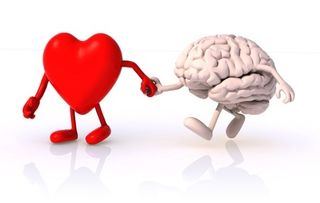Last week I wrote about the strange dichotomy in organisations: their dependency on people while generally failing to take any account of the intrinsic drivers of human behaviour. I attributed this to a large extent to an ingrained management attitude of considering people as job-fillers and numbers. While holding to that view, I now want to consider the extent to which the HR profession has been guilty of perpetuating this pervasive attitude.
For me its guilt in this regard is implicit in its change from “Personnel” to “Human Resources” (which, if you have journeyed around the sun as often as I have, you may remember!) Arguably, this had two significant consequences:
- A shift in focus away from people, and the humanity of considering them as individuals, and instead turning the role into a more bureaucratic one, concerned more with compliance and numbers.
- The resultant (and ironic) diminution in the profession’s role and the consequent struggle to earn its proper place in the executive suite.
Whether you agree or not, that is all in the past; relevant only as history. Far more important are the lessons learned. Is the profession changing, and, if so, to what extent and is it ready to meet today’s challenges?
On the surface there are some good signs. Efforts to play a more strategic role and increasing focus on employee engagement, wellness or well-being, and mindfulness, all suggest that the profession is attempting to step up to the plate. One still, however, has to question the overarching mindset. Has the profession really moved beyond the idea of people as resources? Undoubtedly time will tell, but I am not convinced it has, and it will never fulfil its role until it does.
My doubts reside in the other side of the dichotomy I described last week: the consideration of the drivers of human behaviour and specifically the intrinsic physiological and psychological forces. I have seen little to suggest that the underlying principles that Sinek, Csikszentmihalyi and Pink have written about so eloquently have been understood, let alone embraced.
After all, if actions are driven by the biological release of chemical stimulants, what is being done to ensure environments that encourage the release of the positive stimulants and prevent the release of the negative stimulants and ensure a happy environment? If employee engagement is the result of a sense of belonging and of the trust that derives from being able to rely on colleagues to also look out for your interests, what are you doing to develop such environments and the stimulants that ensure it?
And the opposite – if stress results in the release of negative chemicals and is the root cause of health problems, what are you doing to reduce stress and immunize the organisation from its effects?
If you are not actively considering these questions and endeavouring to address them, you are perpetuating the historical failures of the profession. You are embalming the philosophy of people as resources rather than human beings. Humane Resources (or Personnel – if you prefer to turn back the clock) demands looking out for the people in the organisation – the physiological and psychological needs of every one of them. (After all, that is what “winning hearts and mind” really means!) And isn’t that why you embraced the profession in the first place?
So, to meet your own such needs, you must realise the intrinsic leader in you and resist the approach that considers people in the abstract – as numbers – and look out for the people who depend on you. Doing so, you will ensure sustained organisational success, enhance your value and earn the trust, respect and rewards you deserve.
_____________________________________________________________________________
Contact me today for a free 30 minute conversation about how my ‘Every Individual Matters’ model can help you create an organisational culture that embraces change and transforms – and sustains – organisational performance.
_____________________________________________________________________________
Bay is the founder and director of Zealise, and the creator of the ‘Every Individual Matters’ organisational culture model that helps transform organisational performance and bottom-line results. Bay is also the author of several books, including “Lean Organisations Need FAT People” and “The 7 Deadly Toxins of Employee Engagement.”


It’s almost a daily dilemma for HR professionals to balance between the humane and the typical business-focus aspects. As a reminder of the emphasis on the human side of human resources, I had posted a visual with the line, “In the age of big data/analytics and amid cries of ROI #HR folks would do well to remember this…” at https://twitter.com/r_ganesh/status/638270297351700480
I believe we are in the midst of an unfortunate trend where improved technology (not bad in and of itself) that is taking HR towards a more clinical, employee self-service pushing approach. Innovation is largely seen in the (Silicon Valley based) technology space, holding out hope that their practices may percolate into other industries.